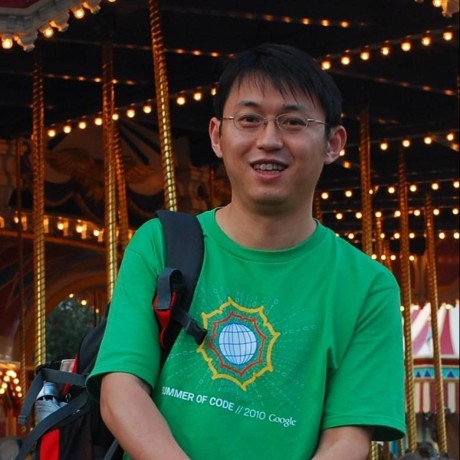2022年ASF董事会竞选宣言 – 姜宁
中文翻译
如果今年我再次当选,我的集中精力和资源帮助ASF的项目管理委员会(PMC)。我的优势是拥有两年董事会董事经验,指导过三个ALC本地分会,在跨项目社区发展方面我也有很多经验。
如果今年再次当选,我将成为ASF与项目之间更好的桥梁。我将侧重于帮助PMC,并在我去年一样,在三个主要领域重点工作:
- 首先,我将确保ASF项目得到良好支持,满足用户需求,通过推动团队合作、开放性和最佳实践。
- 其次,我将通过我们的亲身活动成功案例,像“CommunityOverCode Asia 2024”,努力提升我们的未来活动,使其达到新的高度和成功,并在中国更好地宣传ASF的工作和价值。
- 最后,我将与中国的大型科技公司合作,提高对供应商中立性的认识教育,确保每个人都能从中受益—无论是ASF项目还是共同解决技术问题的公司。
对于不熟悉我的工作的人,这是我的个人介绍。 我从2006年开始为ASF做出贡献,已经是十多年的ASF成员。我已经担任了两届董事会董事,并且是一个活跃的Apache Incubator导师,协助了10多个孵化项目。四年前,我在北京创立了ALC(Apache Local Community)Beijing,推广Apache之道和中国的开源文化。我是ApacheCon Asia 2021、2022和CommunityOverCode Asia 2023、2024的会议主席。这些角色与我在字节跳动OSPO的日常工作相得益彰。
ASF在我心中占有特殊的位置,因为它是致力于为公共利益创建开源软件的个体的全球中心。ASF坚定不移地致力于透明度和民主,其原则和政策为有效的项目管理提供了坚实的基础。 ASF凭借其对透明度和公平的承诺,致力于实践厂商中立的原则。在开源项目中,厂商中立至关重要,因为它确保开发、决策和收益不受任何单一公司意志的主导,促进公平和协作的环境。 这种中立性鼓励多样化的贡献,推动创新,维护开源社区的完整性和信任,最终导致更强大、更普遍适用的软件解决方案。通过优先考虑社区利益,ASF培育出可为未来发展的可持续项目。在这个支持性的生态系统中,我们相互学习知识,并伸出援手以确保集体成长和成功。
去年,我列举了我作为董事会董事希望追求的三个重要工作方向。
- 为ASF项目的社区带来更多可持续的洞见和经验。
- 在中国传播ASF项目以及ASF之道的认知。
- 与中国的大型科技公司进行互动。
回顾我去年的工作,我为在中国传播ASF项目和Apache之道的重点和努力感到骄傲。这包括担任 CommunityOverCode Asia 2023的主席,并讨论了如何支持Apache孵化项目,我用中文编写了相关孵化导师文档。与中国的主要科技公司合作时,我与阿里巴巴、蚂蚁集团和字节跳动的OSPO密切合作,提倡上游优先的方法论,建立与ASF项目相关的本地社区。
在董事会会议审议顶级项目(TLP)的报告时,我注意到有些项目因为社区支持不足而选择退休。导致这种情况的原因有很多。除了向 PMC 发出呼吁邮件,我们还能否做出一些改变呢? 这种情况需要的不仅仅是呼吁 PMC 提供帮助;它需要一个结构性解决方案,以降低参与者的门槛,分享治理最佳实践,在基金会层面简化发布流程。
我们需要强调社区参与、透明度和最佳实践,以帮助确保 ASF 项目得到良好支持、维护,并随着时间的推移能够为其用户带来价值和满足需求。为减轻维护者的压力,我们需要建立一个结构帮助 PMC 降低用户参与项目的门槛,在基金会层面分享一些社区治理的最佳实践,并改善发布流程。
作为孵化器导师,我热情于支持孵化项目,通过分享我从 ASF 学到的知识帮助它们完成孵化过程。我知道社区的力量,可以帮助我们实现个人无法实现的目标。 作为本地导师,我看到文化差异如何影响开发者。建立本地社区和定期聚会创造了一个分享挑战、得到支持和建立信任的安全空间。分享这些经历有助于增强中国的开源生态系统。 受到Rich的社区发展(ComDev)工作的启发,我将通过加入 PMC 顾问团队,把我在孵化项目过程中积累的经验带到 ASF 顶级项目PMC中,帮助项目建立更可持续的社区。
ASF 一直是人们在开源世界推动创新的一个绝佳的地方。我真的很享受与 ASF 的旅程,并希望将它推向新的层次。我期待着在另一个任期内,从董事会服务 ASF。
英文原文
If I am elected again this year, my focus and priorities will be centered on helping the PMCs at the ASF. I offer a unique perspective, with two years of board director experience and mentoring three ALC chapters, especially in community development across projects.
I can be a better bridge between the ASF and projects. If reelected this year, I will focus on helping the PMCs and on three main areas as I did last year:
- First, I’ll ensure ASF projects are well-supported and meet user needs by promoting teamwork, openness, and best practices.
- Second, I’ll work to make ASF’s work and values better known in China by building on our in-person event successes such as “Community Over Code Asia 2024” - to propel our future events to new heights and successes.
- Lastly, I’ll collaborate with big tech firms in China to raise awareness and educate on vendor neutrality and ensure everyone benefits—both the ASF projects and the companies tackling shared tech problems.
For those unfamiliar with my work, I began contributing to ASF in 2006 and have been a member for over a decade. I have served two terms as a board director and am an active Apache Incubator mentor, assisting more than 10+ podling projects. I started the ALC (Apache Local Community) Beijing four years ago to promote the Apache way and open-source culture in China. I am the ApacheCon Asia 2021, 2022, and CommunityOverCode Asia 2023,2024 conference chair. These roles complement my day job as a ByteDance OSPOer.
The ASF holds a special place in my heart as it’s a global hub for individuals dedicated to creating open-source software for the public good. Operating with an unwavering commitment to transparency and democracy, the ASF’s principles and policies provide a solid foundation for effective project management.
The ASF, with its commitment to transparency and fairness, can foster principles of vendor neutrality. Vendor neutrality is essential in open-source projects as it ensures that the development, decision-making, and benefits are not dominated by any single company’s agenda, fostering a fair and collaborative environment.
This neutrality encourages diverse contributions, drives innovation, and maintains the integrity and trust of the open-source community, ultimately leading to more robust and universally applicable software solutions. By prioritizing the value of community above all else, the ASF fosters sustainable projects that have the potential to flourish for years to come. Within this supportive ecosystem, we gain knowledge from one another and extend a helping hand to ensure collective growth and success.
Last year, I listed three important work directions I aimed to pursue as a board director.
- Bringing more sustainable insights and experience into the community for the ASF projects.
- Spreading awareness of the ASF projects and the ASF Way in China.
- Engaging with the big tech companies in China.
Looking back at my work from last year, I am proud of my focus and efforts in spreading awareness of ASF projects and the Apache Way in China. This included chairing CommunityOverCode Asia 2023 and discussing the championing of Apache incubating projects, for which I authored mentorship documents in Chinese. Engaging with major tech companies in China, I worked closely with the OSPOs of Alibaba, AntGroup, and ByteDance, advocating an upstream-first approach and building local communities with ASF projects.
Reviewing reports of Top-Level Projects (TLPs) before the board meeting, I noted some moved to the attic due to community support shortfalls. There are a variety of reasons that could cause this kind of situation. Can we change it besides sending out a callout to the PMC?
This situation demands more than a call for PMC assistance; it requires a structural solution to lower barriers for contributors, share governance best practices, and streamline the release process at the foundation level.
We need to emphasize community involvement, transparency, and best practices to help ensure that ASF projects are well-supported, well-maintained, and able to bring value and meet the needs of their users over time. To minimize the burnout of the maintainer, we need to build up a structure to help the PMC lower the user’s bar to contribute to the projects, address their daily problems by sharing some best practices of community governance, and improve the release process at the foundation level.
As an incubator mentor, I’m passionate about championing the podling projects and helping them go through the podling process by sharing the knowledge I learn from ASF. I know the power of community, which can help us achieve the goals that a single person cannot reach.
As a local mentor, I’ve seen how cultural differences impact developers. Establishing local communities and regular meetups creates a safe space for sharing challenges, receiving support, and building trust. Sharing these experiences helps enhance the open-source ecosystem in China.
Inspired by Rich’s Community Development (ComDev) work, I aim to bring my experience to the incubated projects to help TLP PMCs build more sustainable communities by joining the PMC Advisors team.
The ASF has always been a magnificent place for people to boost innovation in the open-source world. I truly enjoyed my journey with the ASF and want to bring it to the next level. And I look forward to serving the ASF from the board of directors in another term.
